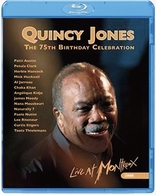- ホーム
- > 洋書
- > 英文書
- > History / World
Full Description
Germany and Russia: two countries whose turbulent and interlocking histories have profoundly shaped the world in which we live today. The long twentieth century was in many ways a German-Russian century. In 1917, imperial Germany became the birthplace of Russia's October Revolution, whose ideological radicalism shook the established order of states. With Hitler's seizure of power and the outbreak of World War II, Germany and Russia were thrust into violent conflict with one another. Defeating Hitler led Stalin's Red Army into the heart of Europe and Germany became the training ground for the Cold War, where two highly armed military blocs confronted one another for four decades. It was only with the collapse of the USSR that Germany was able to re-unify. Sustained efforts were made in the aftermath of the Cold War to normalize relations between Germany and Russia, but the renewed tensions precipitated by Russia's invasion of Ukraine show how fragile this relationship remains.
The German-Russian Century the distinguished historian Stefan Creuzberger tells the remarkable story of this crucial relationship between two states and two peoples. He lays out the large ideological contexts of fascism and communism and patiently traces the efforts that each state made to confront and balance the power of the other, from the tense years before and after the Second World War through the Cold War to the present day. He shows how each side often saw the other in terms of itself - how Stalin perceived Hitler as a fellow imperialist while Gerhard Schroeder was drawn to Putin as a modernizer and reformer seemingly similar to himself.
Engagingly written and magisterial in its grasp both of the big issues at stake and of the historical detail, this book will be of great interest to anyone interested in the historical forces that have shaped the modern world.
Contents
I. INTRODUCTION: EXCAVATING THE PAST
II. REVOLUTION AND TRANSFORMATIONAL CHANGE
Prerevolutionary Lifeworlds
Tactical Respite: The Road to the October Revolution and Peace of Brest-Litovsk (1917/18)
'Arise, Ye Workers': Hopes for World Revolution
Caesuras in an Age of Radicalism: The Nazi Seizure of Power and the Dictators' Pact
Building Socialism in a Divided Germany, 1945-49
Diplomatic Transformations? Adenauer's Visit to the Soviet Union and Brandt's Moscow Treaty
Losing the GDR: The Kremlin and Reunification
III. TERROR AND VIOLENCE
Clash of the Empires: August 1914 and the 'Forgotten War' in Eastern Europe
From a Global Conflagration to Civil War: Fertile Soil for Radicalization
The Power of Ideologies? Totalitarian Encounters
'Friendship Sealed by Blood': Terror and Political Cooperation
Battlefield of the Dictators: The Ideological War of Annihilation
Victors and Vanquished: Flight, Expulsion, and Stalinist Terror in the SBZ/GDR
Flashbacks: Memory Culture and Totalitarian Violence
IV. DISTANCING AND RAPPROCHEMENT
Ambivalent Times: German-Russian Encounters in the Rapallo Era
Totalitarian Dictatorships: Stalin's Overtures to Hitler and the Proxy War in Spain
Unnatural Alliance: From the Hitler-Stalin Pact to Operation Barbarossa
Coerced Cooperation: Reparations and Dismantling after Germany's Defeat
Trilateral Relations in the Cold War: Political Crises and Rapprochement, Economic Diplomats and Cultural Bridge Builders
Gorbachev's Perestroika: A Fraying Brotherhood and Easier Relations with Bonn
From Ostpolitik to Frostpolitik: Partnership and Confrontation in the Post-Soviet Era
Zeitenwende? Putin's War in Ukraine and the Germans
V. THE GERMAN-RUSSIAN CENTURY: SUMMARY AND OUTLOOK FOR THE FUTURE
Acknowledgments
Abbreviations
Bibliography
List of Illustrations
Notes
Index







